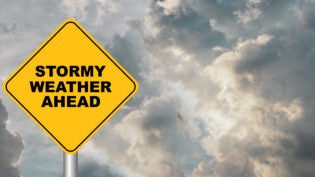
Running a successful business requires you to invest valuable resources into its launch and growth. However, the time and money you’ve poured into it can be lost at any time due to unexpected circumstances.
You could be sued for negligence. An employee could get injured at work. Your storefront could be destroyed by a natural disaster. You could become too ill to run your business. The list of situations that can lead to financial loss goes on and on.
Fortunately, there are various forms of insurance that can help you protect your operation at every stage. Here are 10 insurance considerations for small business owners today.
-
General Liability Insurance
All businesses need general liability insurance. A general liability insurance policy is designed to help protect your business against financial loss due to:
- Property damage
- Bodily injury
- Medical expenses
- Settlement bonds or judgments
- Libel and slander
- Defending lawsuits
Having the right general liability coverage can make or break your business in uncertain times.
-
Commercial Property Insurance
Business owners whose operations include property and other physical assets need commercial property insurance. This coverage protects your business from loss and damage to your facilities and equipment due to inclement weather, civil disobedience, fire, and vandalism. Consider tacking on additional coverage that protects you and your business against the loss of earnings caused by damage to your property as well.
-
Home-Based Business Insurance
In the age of COVID-19, starting a business from home has probably never been more appealing. Similarly, more and more business owners are weighing their options between going back to their offices and staying home. If this is the case for you, be sure to add a rider to your homeowner’s insurance policy that offers protection on business equipment and technology, along with liability coverage for third-party injuries.
-
Workers’ Compensation Insurance
If you have employees, you are legally required to have workers’ compensation insurance (although requirements vary by state). Workers’ comp insures the business and its employees in the event they are hurt on the clock. It provides income replacement and medical benefits for your employees, as well as legal protection for you and your business as the employer.
-
Product Liability Insurance
For businesses that manufacture, wholesale, distribute, or sell products, product liability coverage is a must-have. Like other types of liability insurance discussed here, product liability insurance protects you and your business against negative financial impact. In this case, you are insuring yourself against financial losses stemming from defective products that bring harm.
-
Professional Liability Insurance
Professional liability coverage, also known as malpractice insurance and errors and omissions insurance, protects service providers against financial loss if a customer experiences a negative result due to error or negligence. From doctors and attorneys to financial professionals and contractors, professional liability coverage is a staple for service providers.
-
Business Owner’s Insurance
Rather than purchasing all the necessary types of coverage individually, you can seek out a business owner’s policy. A business owner’s policy bundles some of the aforementioned types of coverage into one policy. A business owner’s policy typically includes:
- Liability coverage
- Business interruption coverage
- Property coverage
- Vehicle coverage
Not only will this simplify your buying experience, but bundling with a business owner’s policy can also save you money compared to buying each type of coverage separately.
-
Disability Insurance
The Social Security Administration estimates that one out of every four American workers will experience a disabling event that keeps out of work in their careers. Here lies the importance of having individual disability insurance. This coverage will supplement a large percentage of your lost earnings if you cannot earn a living because of injury or illness. As a self-employed business owner, investing in disability insurance now can help you continue to meet your financial obligations both personally and professionally if you become disabled in the future.
-
Business Overhead Expense (BOE) Insurance
Whereas disability insurance protects your personal income, BOE insurance protects your monthly business expenses from disability. Usually, the maximum benefit amount can be as high as $25,000 a month for up two years. The amount your policy pays out depends on your business overhead expenses each month, up to a cap. BOE coverage can be bundled with your individual disability insurance policy or bought alone. Oftentimes, business lenders require you to get this type of coverage in order to obtain financing.
-
Life Insurance
Life insurance is highly recommended for most people, and small business owners are not an exception. If you pass away unexpectedly, the death benefit can help replace lost income so your loved ones cover bills, debts, and funeral expenses. Having life insurance can also help keep your business running after you die. Your life insurance policy’s death benefit can be used to recruit a qualified professional to take over your company.
Final Thoughts
Buying insurance is far from a one-time thing for small business owners. As you grow your business over time, be prepared to revisit your insurance coverage needs with an independent agent to find the right solutions. In doing so, you can rest easy knowing your hard work is protected from life’s many uncertainties.
2374 Views












